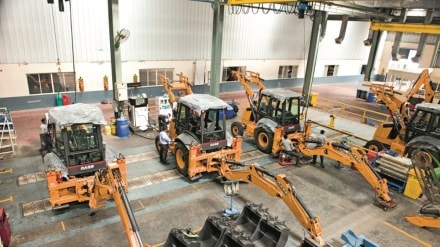By Ajay Srivastava
A high-level committee had recently called for rolling back most of the Quality Control Orders (QCO) to restore industrial competitiveness. Last week, the government withdrew the QCOs for over 20 products. Ajay Srivastava explains why action on steel and other remaining products should now follow
l What are QCOs?
QUALITY CONTROL ORDERS or QCOs are government rules that require certain products to meet set quality standards before being sold in India. These standards are developed and enforced by the Bureau of Indian Standards (BIS) through testing, inspection, and certification.
Both Indian and foreign manufacturers must obtain BIS certification to prove compliance; non-certified products can be barred from import, sale, or distribution. The number of QCOs has surged from fewer than 70 in 2016 to nearly 790 by 2025, most being introduced in the past five years.
l Key issues faced by industries
The government set up a high-level committee on non-financial regulatory reforms, led by former cabinet secretary Rajiv Gauba. In October 2025, the committee recommended rolling back most QCOs on raw materials, intermediates, and capital goods, saying the system adds costs but does not improve safety.
The committee found that India’s rapid expansion of QCOs—though aimed at improving quality — led to supply shortages, higher input costs, and long certification delays, especially for MSMEs. Many QCOs cover raw materials that pose no direct safety or environmental risk, making such regulation unnecessary. The committee noted that most countries use voluntary or buyer-based standards, while India’s overregulation has distorted manufacturing and trade efficiency.
l QCOs for raw materials & intermediates
APPLYING QCOs to raw materials when the final product is already covered under the QCO creates a double-certification trap. Once the end product is BIS-certified, requiring separate approvals for each input adds cost, delay, and bureaucracy. The process takes months, involves high fees, and discourages small foreign suppliers, reducing sourcing options. This causes shortages, higher input prices, and slower production—without improving safety or quality.
A few firms had approached the Madras High Court against such orders by the steel ministry. The case is sub-judice.
l What the panel suggested
THE COMMITTEE CALLED for a major overhaul of the QCO regime. It suggested action on 208 QCOs— revoking 27, suspending 112, and deferring 69. It also urged the government to scrap the Steel Import Monitoring System (SIMS) and the steel ministry’s no-objection certificate (NOC) rules, pause all upcoming QCOs until reviewed by an Inter-Ministerial Group (IMG), and shift toward voluntary or buyer-based standards aligned with global norms.
The panel recommended removing QCOs on key inputs, including:
n Steel: Suspending QCOs for all categories except construction and pressure-vessel grades.
n Textiles & synthetics: Mono-ethylene glycol (MEG), polyester fibres and yarns, viscose staple fibre.
n Plastics & polymers: Polyethylene (PE), polypropylene (PP), polycarbonate (PC), acrylonitrile butadiene styrene (ABS), polyvinyl chloride (PVC), polyurethanes .
n Base metals: Copper, lead, tin, nickel powder.
n Others: Copper wires, flux-cored solder wire, wrought aluminium and alloys, pressure-sensitive adhesive tapes.
l On what items are QCOs gone?
INDIA HAS WITHDRAWN QCOs on 20 major industrial inputs across the textiles, plastics and mining sectors on Nov 13. The rollback removes mandatory BIS certification for:
n Textiles: Terephthalic Acid (PTA), MEG, polyester fibre and polyester yarn.
n Plastics: PP, PE, PVC resin, ABS, PC.
n Metals & minerals: Aluminium, lead, nickel, tin and zinc.
l What’s wrong with NOC system
THE STEEL MINISTRY’S NOC system has made imports slow, expensive and unpredictable. Although only 1,376 steel grades are under QCOs, the NOC requirement extends to all grades, even though 10,000+ are traded globally. Importers must get approvals from multiple agencies—the steel ministry, BIS, and Customs—leading to long delays, port demurrages, and cancelled orders. The committee said the system works like an old licensing regime, restricting supply, raising prices, and hurting MSMEs, and therefore should be abolished.
l What needs to be done now?
THE GAUBA COMMITTEE’S recommendations for steel and other remaining products should be implemented.The BIS must set clear timelines for inspect-ions and approvals. QCOs should not apply to products that India does not manufacture. Approval decisions must be uniform and free from selective delays, with adequate transition time—similar to the EU’s four-year compliance window—to help MSMEs adapt. India should align QCOs with global norms, strengthen testing and accreditation systems, and conduct regulatory impact assessments before issuing new orders. Together, these reforms would make India’s quality framework more credible, predictable, and globally competitive.
The writer is founder, GTRI
